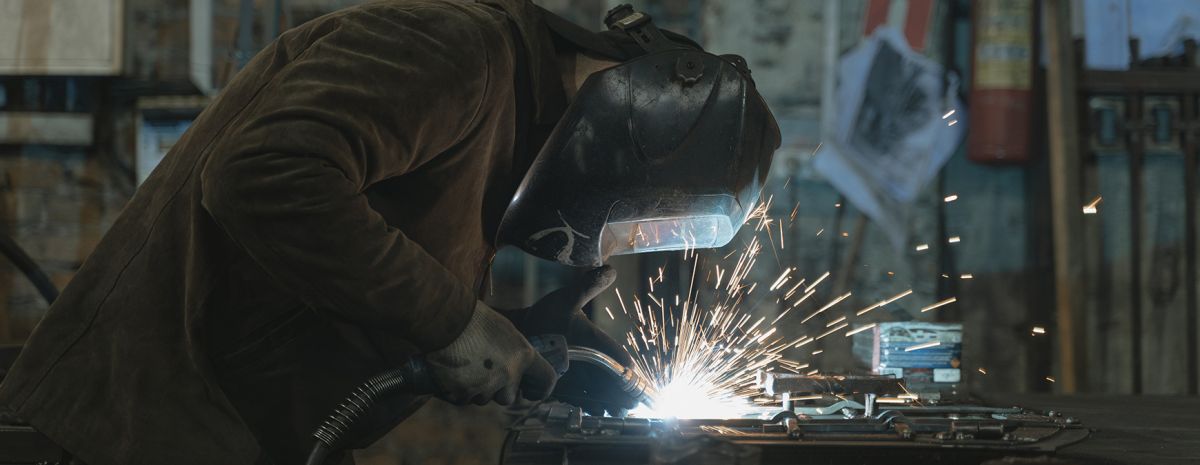TWS is a Great Training Option for Everyone
Learn more about how we can prepare you to advance your career.
In recent years, news agencies and the American Welding Society have spotlighted the aging welding workforce to underscore the potential for a skilled trades shortage.1
How old are welders? The median age of a welder in 2019 was 39.5, according to charts of U.S. Census data.2 In 2020, the Bureau of Labor Statistics (BSL) reported that the median age of a welder was 38.9 years old.3
The median-aged welder may not be retirement age, but a lot of them will be nearing it in the coming years: 44% of the welding workforce was aged 45 or older in 2020, reports the BLS.3
As these older welders retire, younger workers with welding training and experience may be needed to fill the jobs they leave empty.1
Have You Considered a Career in the Skilled Trades?
Fill out the form to recieve a no obligation info packet.
Keep reading for more details.
How Old Are Most Welders?
The majority of welders in the U.S. were aged 25 to 34 in 2020, reports the BLS. Below is a breakdown of demographic age data for welders.3
| Welder Age | # of Welders (in thousands) |
|---|---|
| All welders over 16 years old | 520 |
| Welders 16 – 19 years old | 12 |
| Welders 20 – 24 years old | 65 |
| Welders 25 – 34 years old | 137 |
| Welders 35 – 44 years old | 118 |
| Welders 45 – 54 years old | 103 |
| Welders 55 – 64 years old | 72 |
| Welders 65 years and older | 13 |
Could There Be a Welder Shortage?
The American Welding Society predicts that the nation’s workforce will need over 375,000 welders by 2023.4
Could there be a welder shortage? That remains to be seen.
But some businesses are already noticing the lack of qualified welding applicants.1
Two businesses in Ohio, for example—General Land Systems and Duesway Inc.—both report that they would hire welders right now, but there are no qualified candidates.1
While one of these companies is large and one is a small business, they both face the same problem: they need to hire trained welders, but the pool of local applicants is too limited to fill the needs of the industry. So, they are doing whatever they can to attract trade school graduates.1
Welders Needed Nationwide
Welders work in many different industries, such as manufacturing and construction, shipbuilding, automotive and aircraft welding.5
The need for welders spans many industries:
- Alternative energy and oil/gas companies are growing and need more qualified welders.
- Welders are needed in the field of construction to build or rebuild structures, bridges and roadways.
- Pipeline welders are needed to work on fuel pipelines.
- Manufacturing is increasing, which translates to a need for more workers, including welders.
- Many types of industrial projects require welders for tasks like construction, maintenance and fabrication.
Why Could There Be a Welder Shortage?

Why is it so hard for businesses to find qualified welders?
Aside from welders leaving the job market for retirement, other reasons might include the following:
Some industry leaders believe it’s hard to find qualified welders because of social fears surrounding trade jobs. K-12 education tends to push teenagers toward a four-year college or university.1
But the phobia around trade jobs seems to be slowly lifting, as young people are encouraged to realize that skilled-trades jobs can pay well and offer many benefits.
Many high school students are not aware of welding as a career option. To raise awareness of the trade, there are some programs out there that introduce welding education to junior and high school students.5
Another consideration for welding is that welders are needed all over the country and world, so it could be possible to work almost anywhere.
How Can You Seize Opportunities in the Welding Industry?
Whether or not there is in fact a welder shortage right now, many businesses are struggling to fill open positions. And the problem could get worse as many older welders retire.1,3,5
How can you best prepare to seize such opportunities? We believe best way to prepare for a welding job is to gain the skills and experience that employers are looking for.
When applying for a welding job, applicants are usually required to perform a “weld test” for that particular project. Each assignment and criteria may be unique to the job, but attention to detail and welding skills are usually necessary.
One of the most important factors to getting hired as a welder can be having the appropriate skills and education. Acquiring employable welding skills requires technical training, according to Thompson.6 And the labor department indicates that employers across the U.S. typically prefer to hire applicants with formal welding training from a trade school.6
Tulsa Welding School offers a variety of welding training programs to prepare students for an entry-level welding job. Call us today for more info: 855-806-4921.
1https://dailystandard.com/archive/2020-02-07/stories/39793/a-hot-career
2https://datausa.io/profile/soc/welding-soldering-brazing-workers
3https://www.bls.gov/cps/cpsaat11b.htm
4https://www.aws.org/foundation/page/workforce-development
5https://www.kvue.com/article/money/business/american-welding-society-welder-shortage/269-62c243cd-24bd-4a45-80aa-f2efd5c54309
6https://www.bls.gov/ooh/production/welders-cutters-solderers-and-brazers.htm#tab-4
This blog has been labeled as archived as it may no longer contain the most up-to-date data. For a list of all current blog posts, please visit our blog homepage at https://www.tws.edu/blog/







